第22章 BOOK III(2)
Ath.In the first place,the desolation of these primitive men would create in them a feeling of affection and good-will towards one another;and,secondly,they would have no occasion to quarrel about their subsistence,for they would have pasture in abundance,except just at first,and in some particular cases;and from their pasture-land they would obtain the greater part of their food in a primitive age,having plenty of milk and flesh;moreover they would procure other food by the chase,not to be despised either in quantity or quality.They would also have abundance of clothing,and bedding,and dwellings,and utensils either capable of standing on the fire or not;for the plastic and weaving arts do not require any use of iron:and God has given these two arts to man in order to provide him with all such things,that,when reduced to the last extremity,the human race may still grow and increase.Hence in those days mankind were not very poor;nor was poverty a cause of difference among them;and rich they could not have been,having neither gold nor silver:-such at that time was their condition.And the community which has neither poverty nor riches will always have the noblest principles;in it there is no insolence or injustice,nor,again,are there any contentions or envyings.And therefore they were good,and also because they were what is called simple-minded;and when they were told about good and evil,they in their simplicity believed what they heard to be very truth and practised it.No one had the wit to suspect another of a falsehood,as men do now;but what they heard about Gods and men they believed to be true,and lived accordingly;and therefore they were in all respects such as we have described them.
Cle.That quite accords with my views,and with those of my friend here.
Ath.Would not many generations living on in a simple manner,although ruder,perhaps,and more ignorant of the arts generally,and in particular of those of land or naval warfare,and likewise of other arts,termed in cities legal practices and party conflicts,and including all conceivable ways of hurting one another in word and deed;-although inferior to those who lived before the deluge,or to the men of our day in these respects,would they not,I say,be simpler and more manly,and also more temperate and altogether more just?The reason has been already explained.
Cle.Very true.
Ath.I should wish you to understand that what has preceded and what is about to follow,has been,and will be said,with the intention of explaining what need the men of that time had of laws,and who was their lawgiver.
Cle.And thus far what you have said has been very well said.
Ath.They could hardly have wanted lawgivers as yet;nothing of that sort was likely to have existed in their days,for they had no letters at this early period;they lived by habit and the customs of their ancestors,as they are called.
Cle.Probably.
Ath.But there was already existing a form of government which,if Iam not mistaken,is generally termed a lordship,and this still remains in many places,both among Hellenes and barbarians,and is the government which is declared by Homer to have prevailed among the Cyclopes:
They have neither councils nor judgments,but they dwell in hollow caves on the tops of high mountains,and every one gives law to his wife and children,and they do not busy themselves about one another.
Cle.That seems to be a charming poet of yours;I have read some other verses of his,which are very clever;but I do not know much of him,for foreign poets are very little read among the Cretans.
Megillus.But they are in Lacedaemon,and he appears to be the prince of them all;the manner of life,however,which he describes is not Spartan,but rather Ionian,and he seems quite to confirm what you are saying,when he traces up the ancient state of mankind by the help of tradition to barbarism.
Ath.Yes,he does confirm it;and we may accept his witness to the fact that such forms of government sometimes arise.
Cle.We may.
Ath.And were not such states composed of men who had been dispersed in single habitations and families by the poverty which attended the devastations;and did not the eldest then rule among them,because with them government originated in the authority of a father and a mother,whom,like a flock of birds,they followed,forming one troop under the patriarchal rule and sovereignty of their parents,which of all sovereignties is the most just?
Cle.Very true.
Ath.After this they came together in greater numbers,and increased the size of their cities,and betook themselves to husbandry,first of all at the foot of the mountains,and made enclosures of loose walls and works of defence,in order to keep off wild beasts;thus creating a single large and common habitation.
Cle.Yes;at least we may suppose so.
Ath.There is another thing which would probably happen.
Cle.What?
Ath.When these larger habitations grew up out of the lesser original ones,each of the lesser ones would survive in the larger;every family would be under the rule of the eldest,and,owing to their separation from one another,would have peculiar customs in things divine and human,which they would have received from their several parents who had educated them;and these customs would incline them to order,when the parents had the element of order in their nature,and to courage,when they had the element of courage.And they would naturally stamp upon their children,and upon their children's children,their own likings;and,as we are saying,they would find their way into the larger society,having already their own peculiar laws.
Cle.Certainly.
Ath.And every man surely likes his own laws best,and the laws of others not so well.
Cle.True.
Ath.Then now we seem to have stumbled upon the beginnings of legislation.
Cle.Exactly.